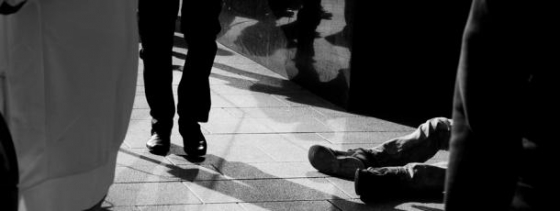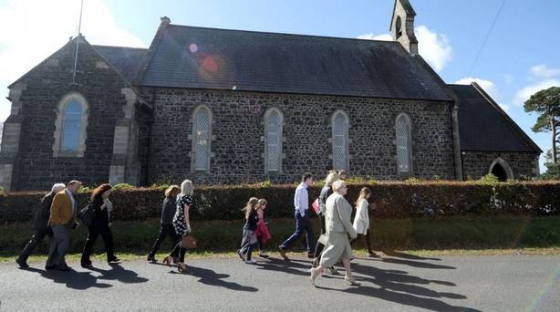Say, we are driving along an empty road, in the middle of nowhere, and a lone woman hitchhiker tries to get a ride from us. Even from the distance it is obvious that she is intoxicated – or ill, or both. Should we stop and pick her up or should we pretend we have not noticed her?
Or at work, tired to the bone, just about to leave office for the day – and a mentally challenged person comes in. I know the man – he has been here before – and I realize that he is desperate for some friendly ear to pour his frustration into. Such visits usually take a long time and it is so late in the day… It is tempting to let him know that I have no time – and I do, really.
An old grand-aunt was taken to the hospital. Should I visit her there? A little voice whispers within “so many people go to see her, do you really have to become part of the crowd? You have so much to do at home? Surely she does not need you by her bedside now – you can do it tomorrow or later on”.
How many times I have passed the God’s test and how often have I failed only He knows. I usually remember those situations in which I failed rather miserably – they sting even after years.
Each situation of the “good Samaritan type” requires swift action and that means that decisions made reflect our priorities. For the priest and levi from today’s Gospel priority was probably ritual purity. The man lying by the road looked and was half-dead. Lots of blood all over him. Had he died (which was quite likely) the priest and levi would have become ritually polluted through the contact with dead body and blood. In such case they would have been banned from their service in the Temple. What could be the thoughts of these two men? “Surely, my service to God is more important than this poor man here. I must not touch him. Maybe someone else will come and help him – it is a busy road. And if he dies, well, he will not be the first and the last. We humans, are like leaves on trees – here today and gone tomorrow – and Adonai is forever”.
So even our desire to serve God can serve as smoke screen for lack of mercy.
Jesus cuts through meanders of our thinking and says that first and foremost we must alleviate the suffering, whoever he or she the sufferer may be. Do what you can, He tells us through the good Samaritan’s story, and go your way in peace.
The worst type of situations which require acts of mercy are those permanent ones. We easily become used to someone else’s misery. “It always has been like that. Why change it?”.
In a little village I know, right across from an impressive, well attended church and only a few houses down from the local CEO’s modern house, there stands a half-ruined wooden cottage in which live three people – two mentally ill women and a disturbed man. The cottage lacks decent furniture, smells terribly and has no plumbing, therefore also a bathroom. It is freezing in winter. The area around it is overgrown with weeds. The women survive on small state subsidies (750 zlotys each) and for years had to beg various friends to buy coal for winter and get some cloths. The man who shares the small bedroom with them is a son of an elder of the women and a brother on another. He works pumping gas at the station and refuses to contribute to the costs of living. He practically vegetates seeking a bit of joy in watching movies on TV and his old laptop. Yes, in this utterly poor and dreadfully neglected place there is a laptop and an internet hook up – maintained by the man with countless psychological problems.
The whole family has been branded “crazies” by the locals long ago, have been subject of century long ridicule – wasn’t the grandmother and grandad likewise poor and deranged? The schizophrenic younger woman living in this decrepit dwelling remembers nothing but ridicule at school. She was always “different”. Stupid.

